NEWS

How to Design Learning That Feels Like an Adventure
For too long, the experience of learning has been framed as a chore. It is presented as a mountain of information to be scaled, a bitter medicine to be swallowed for the sake of future success. The classroom becomes a passive lecture hall, the corporate training a mandatory slideshow, and the personal goal a dusty textbook. But what if we reframed this entire process? What if, instead of a grim ascent, learning felt like setting sail for uncharted territories? What if it felt like an adventure?
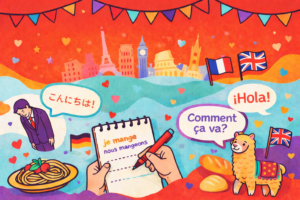
Why Learning a Language Through Culture, Not Just Grammar, is the Key to Fluency
For generations, the blueprint for language learning has been remarkably consistent: a textbook, a list of vocabulary, and the formidable scaffold of grammar rules. Students diligently memorize verb conjugations, struggle with case systems, and fill in countless worksheets. Yet, so many emerge from this process able to construct a sentence, but utterly unable to connect with a native speaker. They possess the bones of the language, but none of its soul. The missing ingredient, the vital spark that transforms a mechanical exercise into a living skill, is culture.
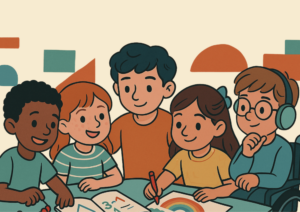
Valuing Difference: The Strength of Diverse Learning Needs
Every classroom is filled with children who see, think, and learn in their own ways. For a long time, education tended to focus on what children struggled with, especially those with special educational needs. Yet research consistently reminds us that these children also bring remarkable strengths that deserve recognition. When we look at the whole child, rather than only the challenges they face, we see potential that might otherwise be overlooked.
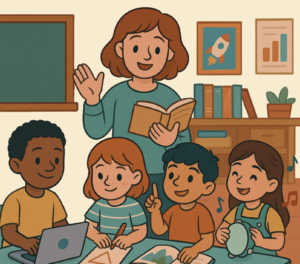
Universal Design for Learning: Making Materials Work for Everyone
In every classroom, children come with different stories, strengths, and ways of learning. Some grasp ideas best through words, others through images, sound, or movement. Yet for too long, teaching has often been designed with a single “typical” learner in mind. This approach can leave many students behind, from those with learning differences to those who are simply wired to learn in other ways.
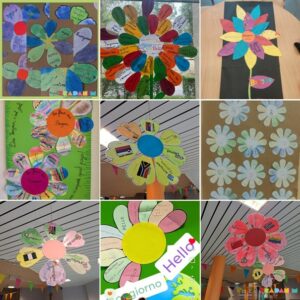
Bringing Language Awareness to Life in the Classroom
Bringing Language Awareness to Life in the Classroom A Dynamic and Cross-Curricular Approach Language Awareness is not an isolated subject. It connects all disciplines :

Language Awareness: A European Approach to Opening the World to Children
Language Awareness: A European Approach to Opening the World to Children A Shared European Vision Language Awareness is a playful, inclusive and global approach that invites children,
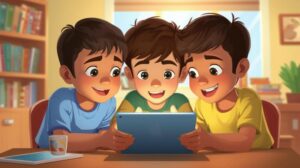
Digital Applications Supporting Role-Playing in Language Learning
Role-play as a language-learning strategy is gaining increasing prominence in digital education because it enables learners to practice a foreign language in authentic yet low-risk situations. Through this approach, students simulate real-life interactions, such as ordering food in a restaurant, speaking at a service counter, or negotiating, thereby not only mastering linguistic structures but also cultivating creativity, spontaneity, and confidence in communication.
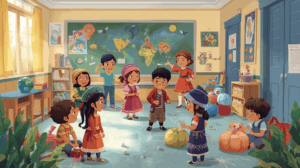
Language in Their Shoes – Role Playing in Language Learning
As it has long been known in the psychological development of children, a child experiences the world with all their senses, learns and acquires knowledge using speech, rhythm, movement, image, and play. The connection between play and learning is completely natural and part of a child’s earliest experiences. Playing has a very important role in the development of a child’s personality, and therefore, as a tool in the school learning process, it gains even greater significance.
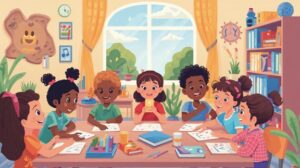
Why Games Belong in the Classroom
At first glance, it may seem paradoxical to associate the words “game” and “learning”, as in many educational systems, the classroom is still a space of discipline, efficiency, and predefined learning objectives. It is not considered a place for games, storytelling, or imaginative play. Yet, increasingly, research urges us to reconsider this perspective.
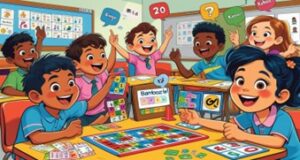
Games that boost language learning
Imagine a classroom buzzing with energy, not from disruption, but from focused, joyful engagement. Students are laughing, thinking, moving, and most importantly, using the target language without fear.

The Power of Role Play in Teaching Languages and Culture in Early Childhood
In early childhood education, learning is most effective when it is playful, meaningful, and rooted in real-life experiences. One of the most powerful strategies for achieving this is role play. When children take on different roles, such as a shopkeeper, parent, or traveller, they not only expand their imagination but also practice essential language and social skills in a fun and memorable way.
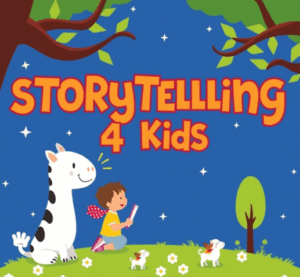
Learning by Doing: The Role of Interactive Storytelling
In early childhood education, the most effective learning happens through experience. Young children learn best not by listening passively but by engaging actively: touching, moving, speaking, pretending, and imagining.
